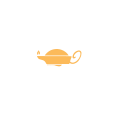Jacqui Stone NP Gasroenterology & Hepatology
Jacqui Stone was appointed to the role of Nurse Practitioner (Gastroenterology & Hepatology: long term conditions) at Middlemore Hospital (CMDHB) in 2016, following a 20+ year career working as a nurse with a strong focus on gastroenterology, hepatitis, and research. Jacqui’s current role sees her running a number of nurse-led and community clinics (inclusive of 2 prisons, men’s and women’s), treating a variety of gastro and liver conditions. Jacqui is involved in nurse education, including as a member of the Hepatitis C steering committee for NZ. She is a keen advocate, both for her patients and fellow nurses and maintains an active membership in the NZ Nurses Gastroenterology Association, Australasian Hepatology Association and associate member of NZGS. She has a Master of Nursing and Postgraduate Diploma in Health Sciences.
ABSTRACT
Title: Moving towards HCV elimination in New Zealand
Hepatitis C virus (HCV) causes liver inflammation with liver fibrosis and is a highly infectious blood-borne virus. Many people are unaware of their HCV due to its non-specific symptoms. This represents a challenge as many infected people do not feel the need to be tested for the disease and remain undiagnosed.
HCV infection affects 122-185 million persons world-wide with the prevalence in New Zealand affecting up to 50,000 people. Many New Zealanders may not know they have HCV as symptoms are very non-specific until they develop advance liver disease. HCV can cause serious clinical complications such as cirrhosis, liver cancer and liver failure therefore it is important to understand the risks associated with HCV transmission to prevent the spread of the virus. HCV is considered the leading indication for liver transplantation in New Zealand, due to liver cancer or liver failure.
HCV is a blood-borne virus and transmission commonly occurs through transfusion of infected blood or blood products, intravenous drug use and sharing of equipment, unsafe therapeutic injections, body piercing, tattooing and acupuncture etc. It is important to understand about preventative measures with health education to prevent the spread and reduce the increasing burden of HCV.
Although no vaccine is available, the disease is preventable and can be successfully treated and cured in most patients, avoiding complicated and costly healthcare interventions and premature complications. The primary goal of therapy is to eliminate HCV as a public health threat over the next decade following unrestricted access to direct-acting antiviral (DAA) therapy.
There is a call to action as it is clear there is need to target efforts to prevent and treat this disease to reduce the burden of chronic liver disease in our country and globally (1,2).
References:
[1] https://www.un.org/sustainabledevelopment/sustainable-development-goals/
2 http://www.who.int/hepatitis/strategy2016-2021/portal/vision-goal-targets/en/
 Menu
Menu
